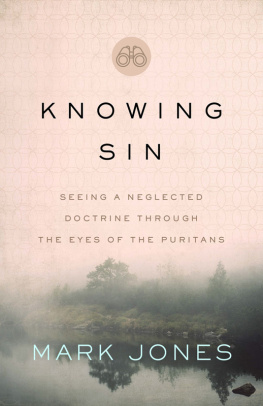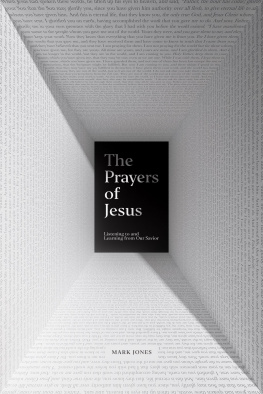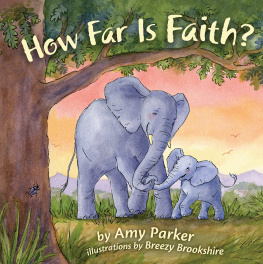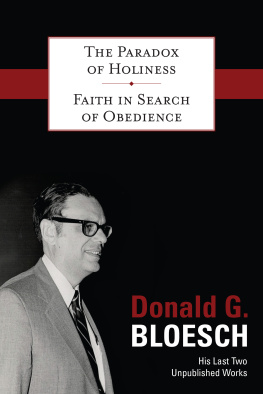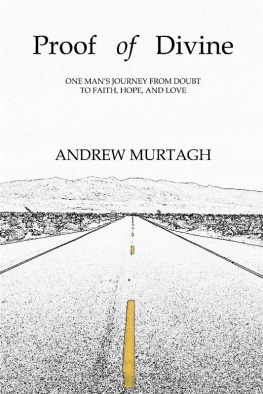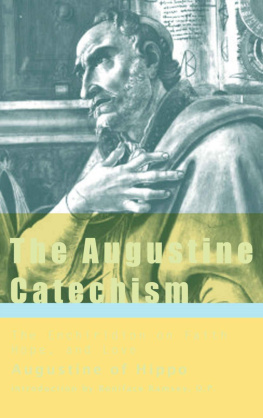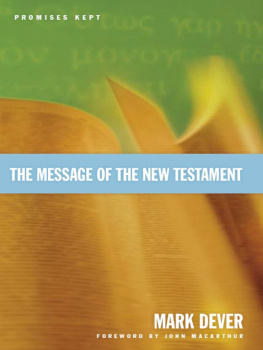Table of Contents
Landmarks
Pastor Mark Jones has written an admirable treatise on the heart of biblical ethics: the virtues of faith, hope, and love. His book is based firmly on Scripture, and he has arranged it as a catechism: questions, answers, and commentary. He also digs deep into classic theological expositions, especially among the Puritans. This arrangement, clearly and vividly written, enables readers not only to understand these teachings, but to internalize them, and thus to grow in grace. This book will be a great help to individual and family devotions and to adult Bible study groups. I hope that many will have the opportunity to read it to the glory of God in Christ.
John Frame, professor of systematic theology and philosophy emeritus, Reformed Theological Seminary, Orlando
Much writing on Christian spirituality is hollow, bereft of theological heft and awash in baptized therapeuticism. By contrast, Faith. Hope. Love. is weightily Puritanesque in the best senseoffering clear, Christ-centered, scriptural ballast for the Christian life. Rooted richly in the Reformed tradition, Jones walks us through the theological virtues and the shape they give to our life in Christ. More importantly, in each chapter he points us to the Christ in whom we place our faiththe one we imitate in love and for whom we wait in hope. I highly commend this work.
Derek Rishmawy, columnist, Christianity Today ; cohost, Mere Fidelity podcast
The old paths are the way into the future. Mark Jones knows this is true for the life and witness of the church of Jesus Christ. He takes us back to the medieval theological virtues, organizes them in a reformational catechism, and uses post-Reformation, orthodox theological distinctions, all to instruct our minds, enflame our hearts, and move us to service. This is as clear as it gets when it comes to the doctrine of justification by faith alone and all that it means for living out a life of faith, hope, and love.
Daniel R. Hyde, pastor, Oceanside United Reformed Church, Carlsbad/Oceanside, California; adjunct instructor of ministerial studies, Mid-America Reformed Seminary; author, Welcome to a Reformed Church
The questions we ask can be just as important as the answers. Well-meaning Christians often harmfully express the three theological virtues of faith, hope, and love in sentimental tropes devoid of substance. I will be recommending Marks excellent book for many to use devotionally. Its catechismal format has provided a superb corrective, moving us to delight in Christ-centered faith, hope, and love, and what they require of us in response.
Aimee Byrd, author, Housewife Theologian ; Theological Fitness ; and No Little Women
In this useful work, Jones clearly and practically guides the reader into the virtues of the body of Christ. The book is laid out in catechetical format, which Jones employs with great dexterity. The questions are those that the fides quaerens intellectum (faith seeking understanding) of any believer naturally poses to itself, and the definitions that follow by way of response are elegant and comprehensive. The expositions of the answers are doctrinally profound but expressed very simply and memorably. Steeped in the wisdom of the doctors and the great Puritan guides of the heart, Faith. Hope. Love. is a much-needed map of the path of the Christians walk with God.
Peter Escalante, fellow of rhetoric, New St. Andrews College
Mark Jones puts to rest the lie that scholasticism is arid and boring. In a rich display of biblical text, respect for the past, and pastoral sensitivity, Faith. Hope. Love. gives to the church a summary of biblical virtue to help us live our theology in honor of a Savior who loves us so faithfully. This is a worthy addition to Joness other works that have made the best of the Great Tradition accessible and enjoyable for a wide Christian audience.
Ian Hugh Clary, assistant professor of historical theology, Colorado Christian University; coeditor, Pentecostal Outpourings: Revival and the Reformed Tradition ; senior fellow, Andrew Fuller Center for Baptist Studies
Question 9
The contemplation of the glory of Christ is the principal exercise of faith.
3:18).
Satan blinds unbelievers to seeing the glory of God in Christ. Conversely, the Spirit gives us an unveiled face (2 Cor. 3:18) in order to perceive such glory in the gospel. This sight does not occur as a one - time event or even as a future hope but as a daily reality gripping our souls to consider why and how we live. As Owen laments, most Christians are strangers unto this duty.
Most Christians today are not merely ignorant of essential truths of Christs person and work but grossly so. Solid, intense, soul - devoting study of Christ remains absent from the lives of many Christians today. Churches fail to proclaim the unsearchable riches of Christ, the visible image of the invisible God (Col. 1:15), as they should. The result? Gods people neglect the principal exercise of faith: contemplation of Christs glory. So in Owens most fitting estimation,
Did we abound in this duty, in this exercise of faith, our life in walking before God would be more sweet and pleasant unto usour spiritual light and strength would have a daily increase;we should more represent the glory of Christ in our ways and walking than usually we do, and death itself would be most welcome unto us.
That last sentence gets to the heart of the issue. Why are so many people, even Christians, afraid of death? Because we have not, in the exercise of our faith, sufficiently grasped the glory of Christ that awaits his people. In some of the most splendid words ever uttered in the history of the world, Christ prayed, Father, I desire that they also, whom you have given me, may be with me where I am, to see my glory that you have given me because you loved me before the foundation of the world (John 17:24). He prayed these words to help us deal with death but also to give us a positive look at death: the full contemplation of his glory in his presence, of which we begin to taste now on earth.
Christ desires that we see his glory, but we so often do not share the same wishes. God shines into our hearts the light of the knowledge of the glory of God in the face of Jesus Christ (2 Cor. 4:6). That is, God has bestowed on us this unique dignity, but perhaps we fail to understand how blessed we are. As a result, we fail to make the most of this blessing.
Think of the things to which you give attention. How do you exercise your mind? In the contemplation of money, possessions, friends, and prestige? With what are you obsessed? Work, sports, music, politics, Xbox, or Facebook? This may sound shocking, but only those who contemplate Christs glory will one day see his glory. Why? Because true faith can have no other end (or goal) than being with him as the object of our faith. Our faith is not ignorant of itself. We look to Christ, not to our faith. In looking to him, we live in contemplation of him as we long to be with him. The prospect of seeing Christ, in his peculiar glory as the God -man, should ravish our hearts with an anticipation that fills us with daily delights.
We know and love Gods attributes in and through Christ. Therefore, to know God, we must know Christ. The contemplation of Christ brings us to the contemplation of God. Gods wisdom, power, justice, goodness, mercy, faithfulness, and patience are nowhere better displayed than in the life, death, resurrection, ascension, and enthronement of Jesus . So when we contemplate these aspects of Christs work, we come to love the holy properties of our great God. God and Christ are the objects of our faith: Truly, truly, I say to you, whoever hears my word and believes him who sent me has eternal life. He does not come into judgment, but has passed from death to life (John 5:24). Faith in Christ necessarily brings us to God, and faith in God necessarily brings us back to Christ. As a result, Thomas Watson calls faith an assimilating or conforming grace. Why?



